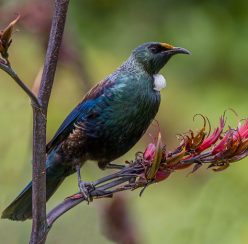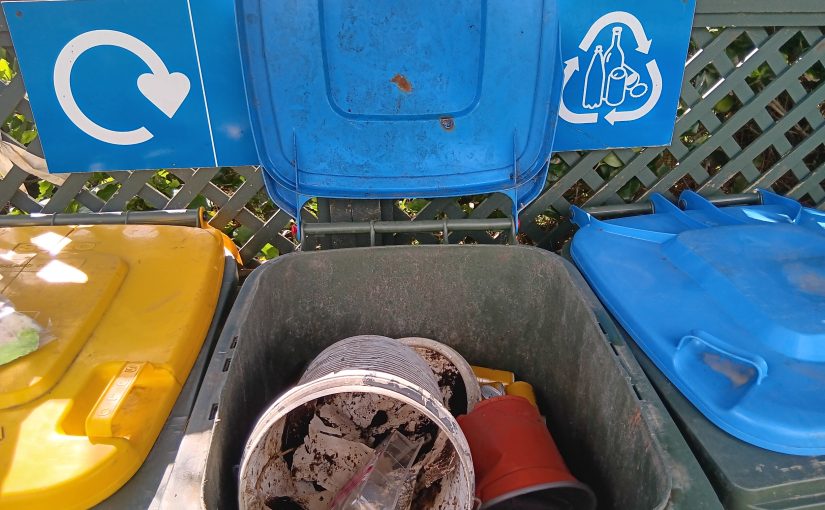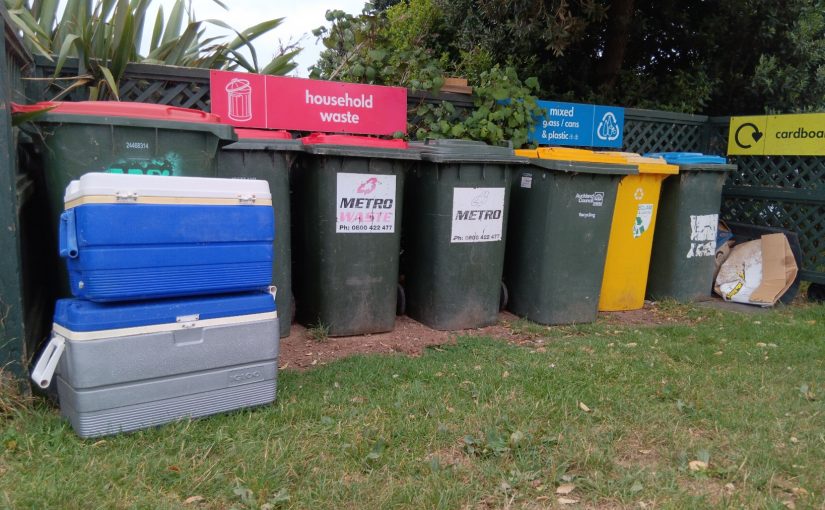Monday of King’s Birthday weekend 2025.
Following on from the inspiration of the Hauraki Gulf Islands Network Hui, Lyndsey and I got permission to conduct a waste audit at the end of the recent long weekend. The purpose of the audit was to establish how Rakino-ites are utilising our rubbish collection system, whether we are recycling correctly, and what we are consigning to household waste, in order to ascertain the viability of a community composting system, with an associated community garden.
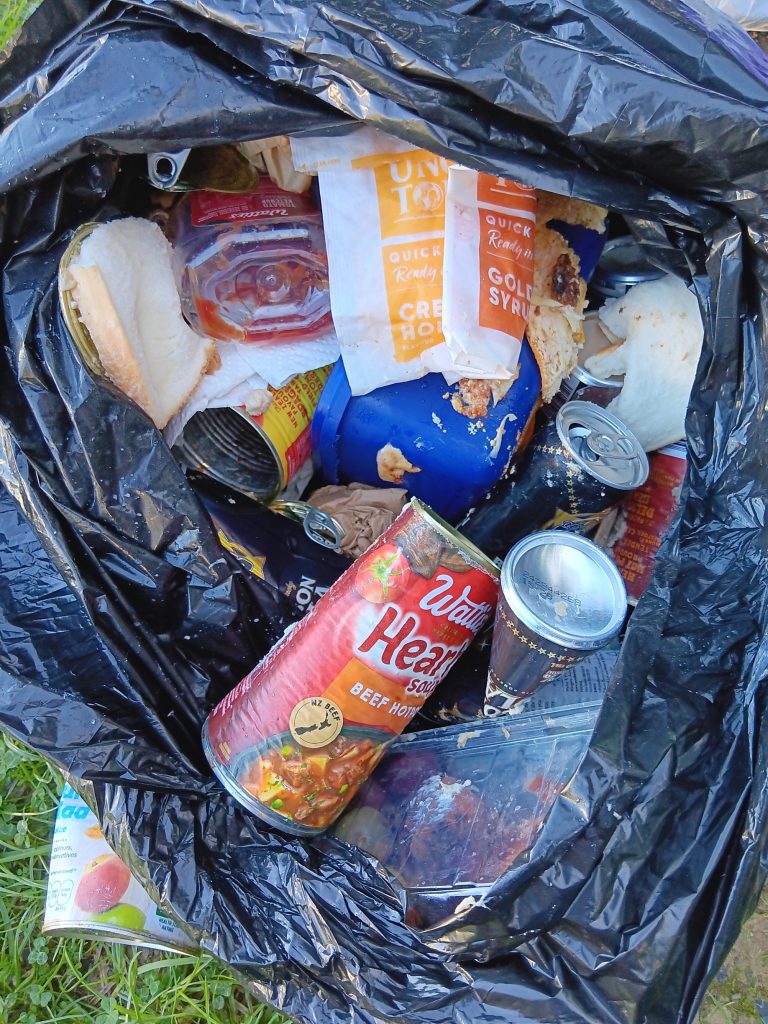
We were unprepared for just how bad the rubbish disposal practises of Rakino-ites are.
If we put the un-recyclables into the recycling bins in Auckland as we do on Rakino, our rubbish wouldn’t be collected. It’s only because Tom and Pat fossick through our filth in order to correctly assign it after they’ve collected it that we avoid sanction.
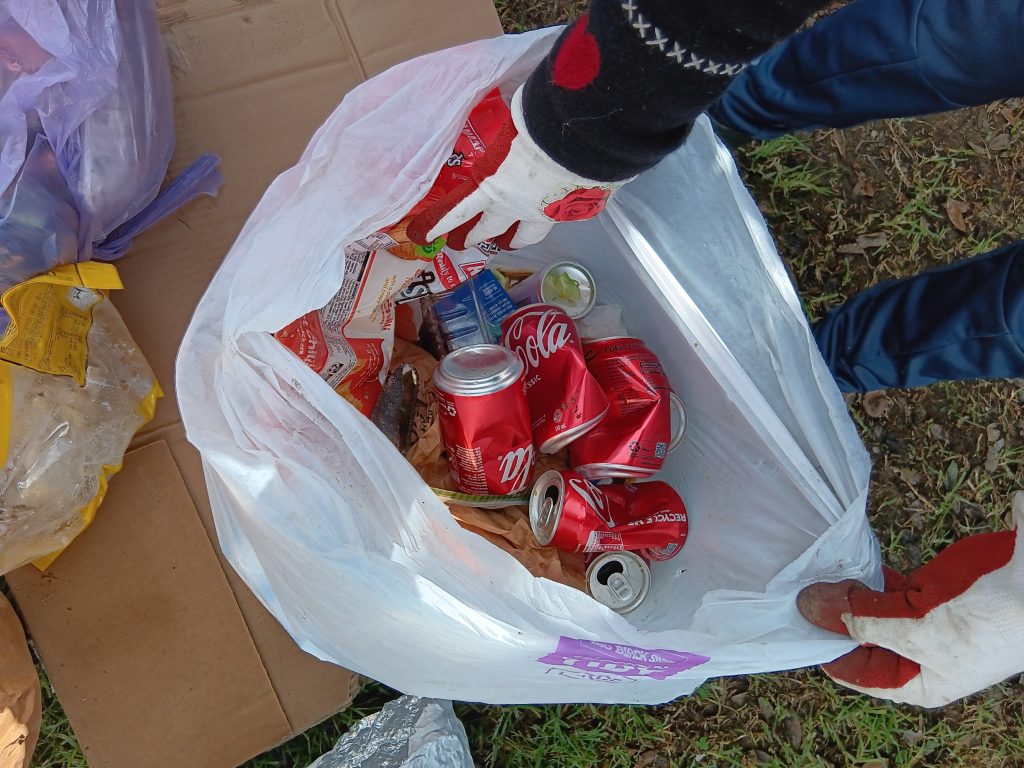
Many people don’t even put their rubbish into bags to contain it. We found a lot of polystyrene which had just been shoved into the household waste bins. If you can’t take your polystyrene back to Auckland, please break it down and put it into rubbish bags with ties. This is because when the bins are emptied, the propensity for polystyrene beads and pieces to blow away is high. The same applies to moth plant pods; we hugely appreciate your efforts to remove moth plant, especially as it’s a scourge on Rakino with must be removed by landowners, according to council edict, but please put it in bags, and only the pods; not the vines or leaves.
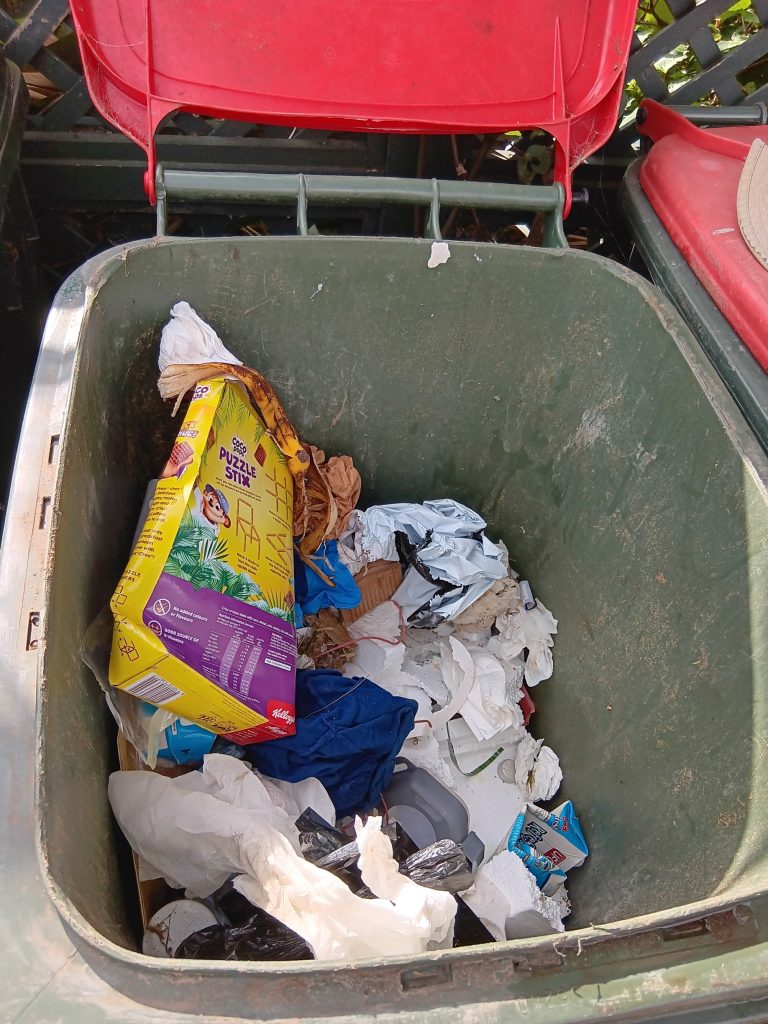
The worst aspect was the volume of food waste. Food waste was mixed in with recyclables, and all tossed together into household waste bins. Come on, people; we have no rats on Rakino so you could simply bury it, though much of the food we found was still edible, which was quite confronting.
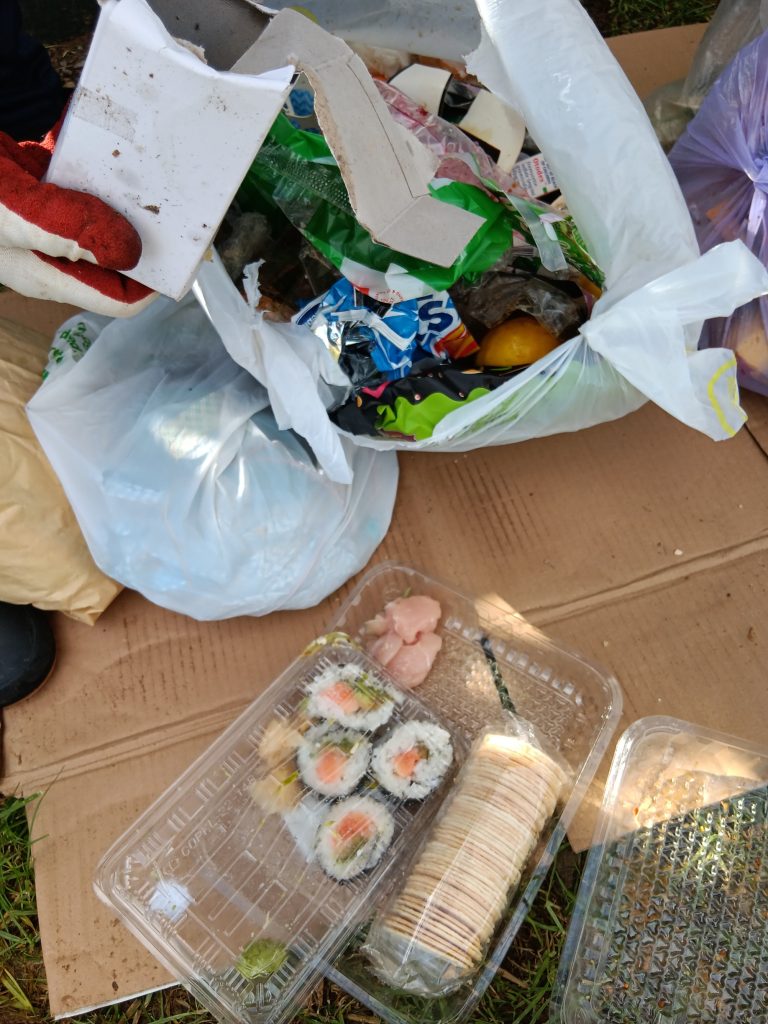
Lyndsey and I are proposing setting up a system to improve the way we deal with waste on Rakino. At this point we can’t do much worse than we are currently; it’s disrespectful to Tom and Pat, and it’s disrespectful to our environment. Living ‘off-grid’ is much more than just collecting rainwater and making solar power. It’s also about treading lightly on the land, reducing, re-using, and recycling.
We intend to see all food waste, brown cardboard, and green waste diverted to community composting, apart from the modest amount that is currently diverted to Pat’s chooks, of course.
Initially we want to supply a few households with small plastic bins with handles, essentially the green compost collection bins we have in Auckland. Tom has generously offered to set aside some waste collection bins for food waste, which will be delivered to our compost site. We will also be removing cardboard (brown carbon waste) from the rubbish collection in order to compost this along with food waste, and we will be encouraging green waste to be donated to the compost scheme, rather than left lying around, or tossed down banks or onto neighbours’ properties. There is funding available, and we intend to go for it. This is Lyndsey’s baby, and it’s going to be a great success. Just watch this space.
